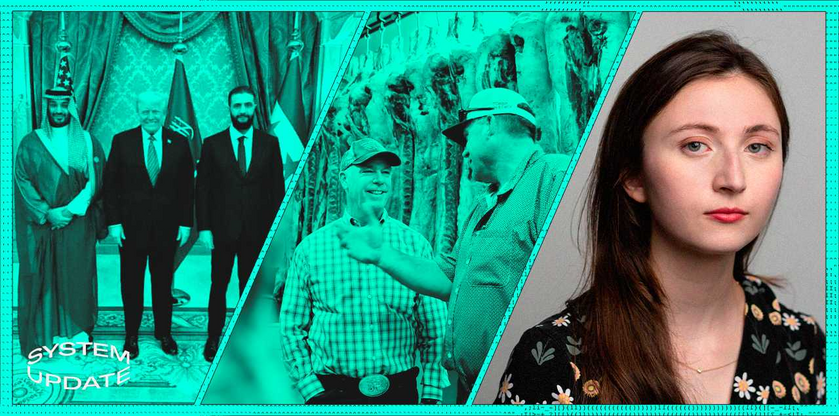The following is an abridged transcript from System Update’s most recent episode. You can watch the full episode on Rumble or listen to it in podcast form on Apple, Spotify, or any other major podcast provider.
System Update is an independent show free to all viewers and listeners, but that wouldn’t be possible without our loyal supporters. To keep the show free for everyone, please consider joining our Locals, where we host our members-only aftershow, publish exclusive articles, release these transcripts, and so much more!
The "interim" President of Syria was known until about five months ago by his terrorist’s name, Abu Mohammed al-Jolani, but now he has undergone a major western transformation by which he traded his military, tunic and pants combo for Armani suits and ties. He has even been given a new, less threatening name: Ahmed Hussein al-Sharaa, President of Syria. As recently as December, the Justice Department on its site branded him a wanted al-Qaeda terrorist and offered a $5 million reward for any information leading to his capture. I know where he is, he's right there, he's ruling over Syria and Damascus.
What a difference a few months make. This monstrous al-Qaeda terrorist is now a respected world leader because the U.S., Israel and the EU countries decided, for whatever reasons, that they want him to rule Syria.
President Trump met with Jolani, or the Syrian President, on Tuesday in Riyadh, Saudi Arabia, where he shook his hand, posed for pictures, and then gushed about how handsome and tough he is. All that was preceded by a state visit to France, where President Macron welcomed him by standing in front of the storied presidential palace in Paris, as al-Jolani pulled up in his black chauffeured car.
Remember, we fought a 20-year war against al-Qaeda.
How can someone almost literally overnight go from a wanted al-Qaeda terrorist monster to someone the West unifies to embrace as a world leader? All of this leads to many important questions, starting with: does this very term "terrorist" have any real or fixed meaning at all? Or is it just a propaganda term that gets applied arbitrarily?
In our second segment, Emma Camp, associate editor of Reason Magazine, joins us to discuss the ban announced by Greg Monforte, the governor of Montana, on lab-grown meat. She has written extensively about this topic. It's just a very strange thing to watch the state ban people from wanting to consume food that has been approved and that they want to eat. You don't have to like lab-grown meat; the solution is just don't buy it and don't consume it, but don't try to ban other people who want to.
So, there is this very strange phenomenon that I've actually been talking about and writing about for a long time, which is how malleable and empty this term terrorism seems to be in terms of the way it's applied. It's an extremely central term. In fact, we fought a war for 20 years after 9/11 in multiple different countries in the name of stopping terrorism.
We constantly kill people or imprison them based on accusations that they're terrorists. Yet, there's that old saying that one man's terrorist is another man's freedom fighter. So often, we take people whom we don't like, and we call them terrorists. Then, when we decide that they're actually of use to us and we say, “Oh, that term doesn't apply anymore.” That leads to the question of the origin of this term. Where did it come from? Doesn’t it actually mean anything?
In The New York Times, on May 14, which was yesterday, there was an article with an interesting headline. It says: “Trump Meets Former Militant Who Now Leads Syria”
That word, militant, is a very nice word. It's very benign. One can be militant about anything. I can be a militant wanting to cure cancer, I can be a militant wanting to feed children. Doesn't really scare anyone.






















